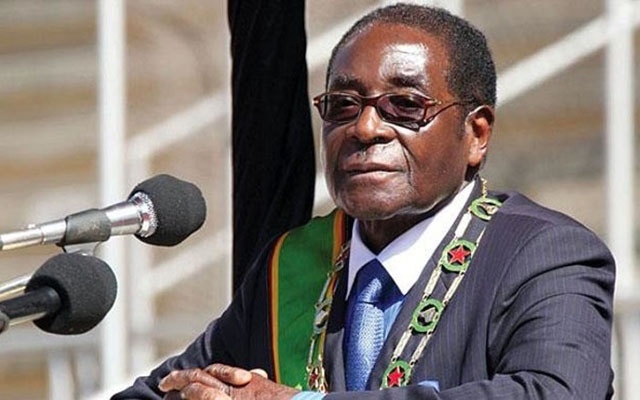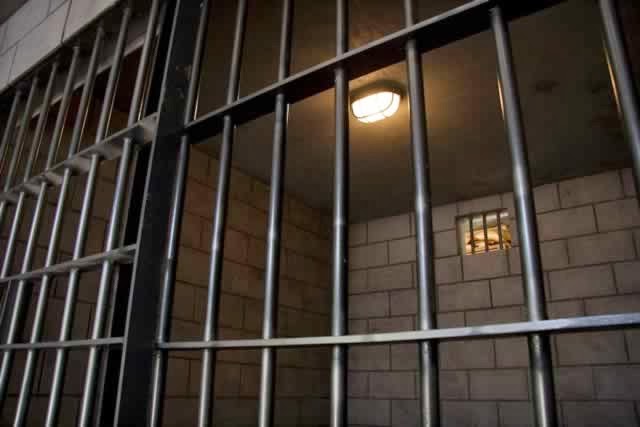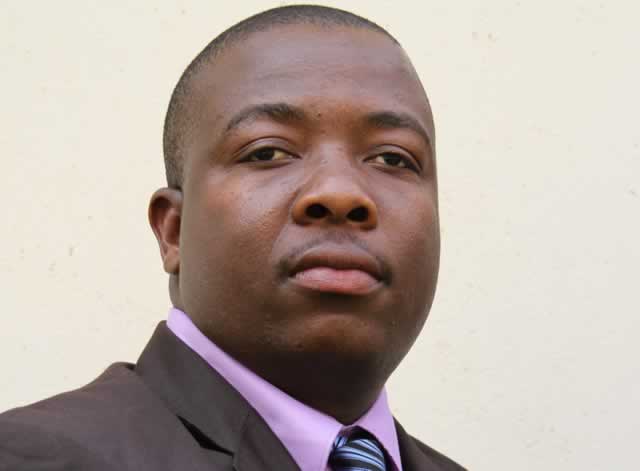Reflecting on Mgagao, Sithole and Mugabe


President Mugabe
George Rutanhire Correspondent
AFTER discovering that I was living with the bullet in my leg, Dare ReChimurenga thought that I should go somewhere where I could get medical attention. They also decided that I should go away, so that I could help the party to source materials, such as medicine, clothes and vehicles.
That is when I was sent to Sweden where there was some organisation that was assisting liberation movements to source materials for different parties. This organisation was operating from the south of Sweden.
I was also tasked to explain to the organisation what our liberation struggle was all about. I was supposed to explain that our war was not a civil war but a revolution. I was also supposed to explain that our only option was the armed struggle and so we wanted assistance. Dare ReChimurenga also wanted someone with experience at the war front. That’s how I was sent to Sweden.
I was chosen together with Cde Makudo or Gondo, who was in Tanzania at Mgagao Camp. So Cde Tongo came to take me from Chifombo to Lusaka. He came with Cdes Chitepo, Mataure and Noel Mukono. They briefed me about the trip to Sweden. They briefed me for days. They were also giving me assurance, ‘‘uchasangana nevamwe varungu ikoko asi ivavo hauna basa navo. Varungu vatine basa navo vari kuRhodesia.’’
They organised tickets for me and this was my first time to board a plane. On October 24, 1974, that’s when I left Lusaka for Sweden. I passed through Dar es Salaam where I was joined by Cde Makudo.
We flew to Stockholm and we were welcomed by our representative Claudius Chokwenda and Kesiwe Malindi. While in Sweden that’s when we met Cde Sekeramayi, who was at Lundi University studying medicine. We later started working together.
Also in Sweden that’s where I met Mai Sally Mugabe and Tekere’s wife Ruvimbo for the first time as they were mobilising resources for Zanu and calling for support for vanaPresident Mugabe so that they could be released from prison in Rhodesia. They encouraged us to keep on fighting and not to look back because eventually Zimbabwe was going to be free.
While in Sweden I spoke about the bullet that was in my leg to Cde Sekeramayi and they advised me against removing the bullet. They said they would treat me kusvika gumbo rapora with the bullet inside the leg. Indeed, they treated me until the time that vaChitepo died. Before Chitepo died, Badza and Nhari had already rebelled against the leadership.
When I was told about this rebellion, I quickly recalled what had happened at the war front during my time with Badza and Nhari. I remembered that during our time at Mukoma Base, Badza and Nhari were acting suspiciously. This actually led to the death of Peter Gutu.
I think these comrades started their rebellion when I was still at the war front, but they were doing it silently by this time. They only told those they thought were on their side about their plans. They kept their secret away from those comrades they thought were close to Tongo and Chitepo.
I think Nhari and Badza had gone into some alliance with the Rhodesians. They were holding secret meetings. So as we were fighting the war, they were coming up with this plan.
So I later heard that vaChitepo had died. We first heard the news about the death on radio but later, Cde Tongo called and informed me about it. He called me one night and murungu umwe wataigara naye ainzi Chris called me to the phone. Cde Tongo said makazvinzwa here kuti Cde Chitepo vakafa? I said yes. He asked me how things were in Sweden and I told him all was fine.
I actually told him that we had a consignment that we were about to dispatch to Tanzania. He then said, because Cde Chitepo had died, we were supposed to quickly come back and go to Tanzania. He said hondo yakatomira izvozvi so mukakwanisa mangwana chaiye, kwirai muuye. Isu tese takasungwa tiri mumajeri. Pindai munzira and from there go straight to Dar es Salaam. When you get to Dar, go to Mgagao and join others there mutange hondo patsva.
Cde Tongo said whatever you are going to plan in Dar and how you are going to execute the war from there will give us the chance for release. He said ‘muronge hondo yekuti hondo yevanhu vemuZimbabwe ienderere mberi. Ndiko kuti tibude mumajeri even vari mumajeri kumusha kuti vabude.’
I said ‘ndazvinzwa Chef. Kuita kutochaya salute nepaphone.’ I said I got your orders Chef. Cde Tongo called me after he had been arrested already in Lusaka. He was already in jail, but he asked for a phone from one of the prison guards.
I informed Chris and Makudo about the order from Tongo. The next morning, Chris was running around to put our passports in order. Together with Makudo we made arrangements to dispatch the materials we had sourced to the ships. The material included about 28 vehicles. After this we went to the airport. We bid our representative Chokwenda goodbye and flew to Dar.
When we got to Dar, we went to the party offices where we met the party representative Gwauya together with Cde Soul Sadza. They briefed us of the situation on the ground. I told them that Cde Tongo had instructed us to go to Mgagao and they drove us to the camp.
When we got to Mgagao, there were only three members of the High Command. There was Cde Rex Nhongo, Cde Dzino (Dzinashe Machingura) and Cde Nyikadzino. I think as Members of General Staff we were around 45. This is where I met comrades such as Perrance Shiri, Constantino Chiwenga, Paradzai Zimondi and Augustine Chihuri. I am the one who had recruited Chihuri from Mangavi in Dotito. When I came back from Sweden, he was now a Member of the General Staff.
When I arrived at Mgagao, these comrades briefed me on what was going on. They told me kuti kwanzi tironge hondo patsva ndikati ahh, ndiro shoko rimwe randakapihwawo. We arrived at Mgagao in June 1975. That is when we started crafting the Mgagao Document. Taiti tikaronga, toridzokorora tichiti uumm, iri rinotibaisa iri. Tobvarura tokanda kwakadaro totanga patsva. We were saying the Frontline Heads of State, vanotiponesa here nepepa iri?
In that document tainyora what was supposed to happen and what we were expecting from the OAU. These were the things we wanted for the liberation struggle in Rhodesia to continue.
We wanted all our comrades who were in jail to be released. Keeping these comrades in jail was derailing the struggle. We said these comrades should be released and if there were any issues to be discussed, they were supposed to be discussed while the war continued.
We were now communicating with the comrades who were in prisons in Lusaka. One of the comrades they sent with information was Cde Tendie (Mukusha). She came with instructions on what we were supposed to do. Kumusha, we knew that Takawira had passed away and Sithole akanga apanduka. He had come with Muzorewa to Tanzania for some talks. These two wanted to stop the war for their selfish interests.
We were also instructed to explain to the Frontlines States why there was Zanu and Zapu. We had to crack our heads to craft an acceptable document. We held meetings at Mgagao, day and night. We had sleepless nights. Like I told you, takabvarura quite a number of papers. That is when I composed the song; “Yakanga yaoma muTanzania.” (singing)
Yakange yaoma muTanzania,
yakange yaoma muTanzania. Yakange yaomaaa! Takazokokorodzana kuti tivake ZIPA,
tikazokokorodzana kuti tivambe ZIPA! Yakange yaoma!
The Frontline Heads of State accepted ZIPA. This was an amalgamation of Zanla and Zipra. We were saying let’s leave politics to the politicians. As fighters we were saying, allow us to go and continue fighting.
We told the Heads of State to go and talk to our political leaders while giving us support to continue the war. We were saying we wanted permission to leave Tanzania to go to the war front and we wanted all the fighters, who had been arrested in Zambia to be released.
That is when we decided, after getting advice from our leaders, who were in prisons in Lusaka, ivowo vakanga vapihwa advice by some of the leaders, who were in prisons in Salisbury; these leaders vaiziva hierarchy yemusangano. Akanga asara ari mukuru ndiCde Robert Mugabe mushure mekunge Takawira afa, vaChitepo vafa and Sithole apanduka.
So akanga asara in that hierarchy was Cde Robert Mugabe.
We then said mukuru asara uyu tomuita sei kuti tisamuise pacorner? Ndiye spokesman wedu kusvika Zimbabwe yasununguka. Anoda kutaura nezvedu, taurai naRobert. Iye ari mujeri. Kana muchida kunzwa nezvemauto ari kurova hondo or zveZanu, endai munobvunza Robert.
These were some of the things in the Mgagao Document. That wasn’t our document tega. Our leaders gave us advice. Members of Dare ReChimurenga, High Command and Central Committee.
This is how we crafted Mgagao Document.
So there were 45 members of General Staff, three members of the High Command and 1 236 fighters at Mgagao when we prepared the Mgagao Document. After crafting the document, we then said lets distribute the document. One copy was sent to President Kaunda, another copy to Samora, another copy to Nyerere and another to the OAU Liberation Committee headed by Hashim Mbita. Cde Rex Nhongo went with the delegation to Maputo. He was also given the task to ask for places where we could set up bases in Mozambique. Cde Peter Mlambo went with the delegation to Zambia.
I was tasked together with Cde Makudo and other comrades to go to Dar es Salaam and deliver the letter to Nyerere. From there we were supposed to deliver another letter to Ndabaningi Sithole and to Hashim Mbita. We were told kuti kana mapedza, you have to go back to Sweden to continue sourcing materiel since the war was to resume.
We delivered the first letter to Nyerere and after reading the letter he was very happy. He said ‘ndakutobata Kaunda izvozvi muri pano.’ When he called Kaunda, Kaunda told him kuti vekuno vatosvikawo. He also called Samora, who told him that Rex Nhongo had just arrived. These leaders agreed that the war should continue.
Nyerere then instructed us that before going to Sithole, we were supposed to deliver the letter to Mbita. He actually called Mbita telling him that we were on our way. We delivered the letter to Mbita then went and delivered another copy to Sithole, who was at Kilimanjaro Hotel. He was on the third floor. I used to remember even his room number. After reading the letter, akambochinja his glasses. He was appearing as if his eyes were failing him.
As he was doing all this, we remained seated. He ordered food for us, but takaramba because we had been given the instruction that tatorumurana naye. The document was saying “pasi naSithole.” Hatisinei naye.
Mhosva dzake dzese we had listed them down. One of the problems we had with Sithole was that he had failed to stand for our fighters, who had been killed in Zambia. He was supposed to condemn the Zambian government for the killing of our comrades. Instead, he chose to fly to America to go and see his daughter. That pained us and up to this day it still pains me. We said mukuru rudzii anofuratira vana kudaro?
Sithole even ordered some beers for us but we said we were okay. He insisted saying ‘siyanai nezvekumabase kwamunogara mufare.’ We said ‘mazuva mazhinji tichadya hedu.’ As we were walking out, Sithole tried to talk to us saying, this is not how things should be handled.
He persuaded us to go and ask the other comrades at Mgagao to come to his hotel for talks. We then told him that the comrades had said, if he wanted to talk he was supposed to come to the camp. He refused. That’s how our relationship with Sithole ended.
This is an excerpt from an interview Cde George Rutanhire had with The Sunday Mail Deputy Editor Munyaradzi Huni in December 2012.









Comments